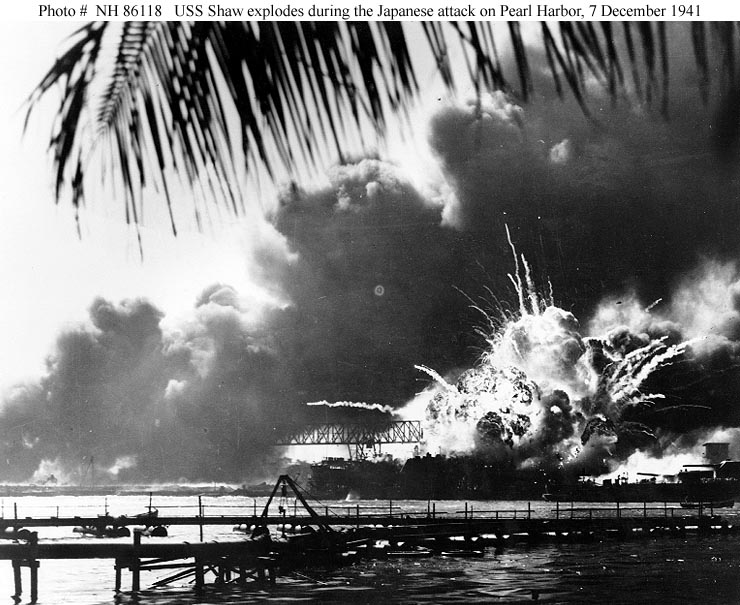Britain and Pearl Harbor April 18, 2014
Author: Beach Combing | in : Contemporary , trackbackThe whole question of the Japanese attack on Pearl Harbor has been mired for years in conspiracy theories. There are, naturally, huge problems with said conspiracy theories not least the motive of the American leadership in allowing the destruction of an important part of their Pacific Fleet; it is not as if Japan was being tricked into declaring war. However, one theory, perhaps because of my nationality, has always fascinated me: the idea that the British executive, possibly even the war cabinet, knew what was coming and chose not to inform ‘the cousins’. After all, Britain’s paramount war aim (after the simple fact of survival) was bringing the US in: a huge amount of British ingenuity and energy and money was used to that end. If the British had picked up some notice of the coming day of fire, then, it might just have been in their interest to stay quiet about it, figuring that the loss of part of the US fleet was a price worth paying: though I confess I have problems with the logic here too.
The whole question has been made particularly difficult because of the different cultures of secrecy in Britain and in the US. Britain is a secrecy mad country; in the US government records are fairly open. Personally, I doubt that had Britain known about Pearl Harbour before it happened that that record would ever have been allowed to see the light of day. But other records have slowly leaked (leached?) into historical record and will continue to do so in the next years. Thanks to these several things have become apparent. First, Britain’s Rolls Royce secret service (SIS aka MI6) was more like a Fiat Uno in the far east. It certainly was not working at the same throttle as the SIS in Europe or the Americas. Second, British code breaking against the Japanese was (almost entirely thanks to American assistance) good until December 1940 when the Japanese changed their JN-25 code to JN-25B. After that the ability of the British and even the Americans to read Japanese orders was nil to low: and this continued until after Midway. Third, internal British Admiralty’s records show that they had misunderstood the location of the Japanese carriers in the early December of 1941.
Fourth, and for me most persuasively, the British, like the US, picked up hints of a coming attack and passed on this information to their future allies. The British apparently did not know about the attack on Pearl or Hong Kong but they were given a two month, a month, a week and a two day’s warning over the contemporary attack on Malaysia and Siam: incredibly this information was disregarded because monsoon weather made any Japanese landing unthinkable! However, other bits of information were treated with more respect. November 26 the British passed on a message to the Americans warning of a coming Japanese attack on Thailand and December 2 the extremely capable Menzies, then head of SIS, asked for the Americans to be warned that the British had picked up a series of clues of a coming Japanese attack against both the British and the Americans in the Pacific. These two signals are recorded in the British archives. It would be interesting to know whether the US has a record of their receipt.
It seems that the British knew that a Japanese attack was coming and tried to warn the Americans: Roosevelt himself, with his own intelligence resources, had come to the same conclusion, though he thought the attack would be exclusively further west. The idea that the British knew about Pearl Harbor but chose to say nothing seems to be incompatible with the material above, particularly Menzies’ warning. Other thoughts: drbeachcombing AT yahoo DOT com



